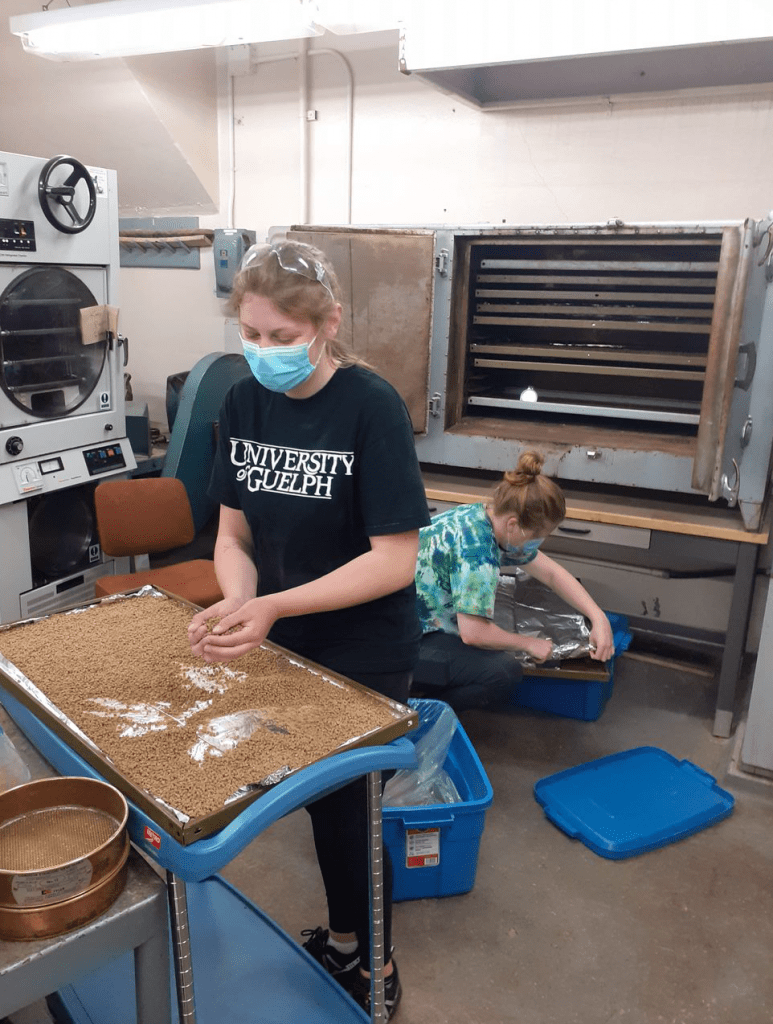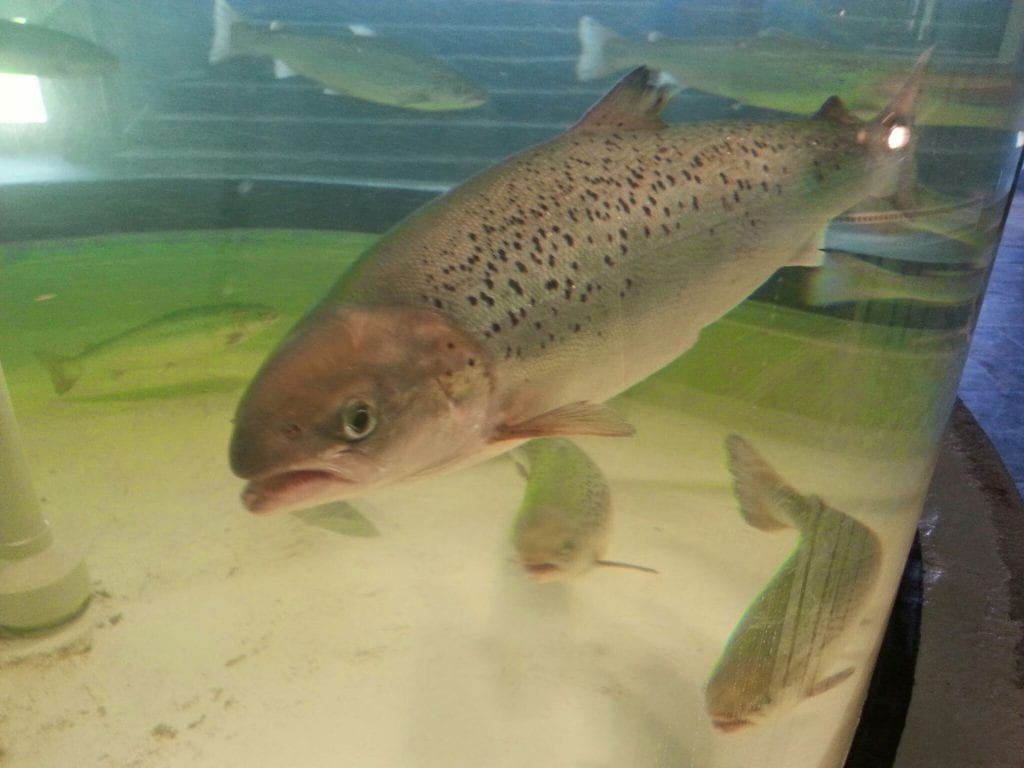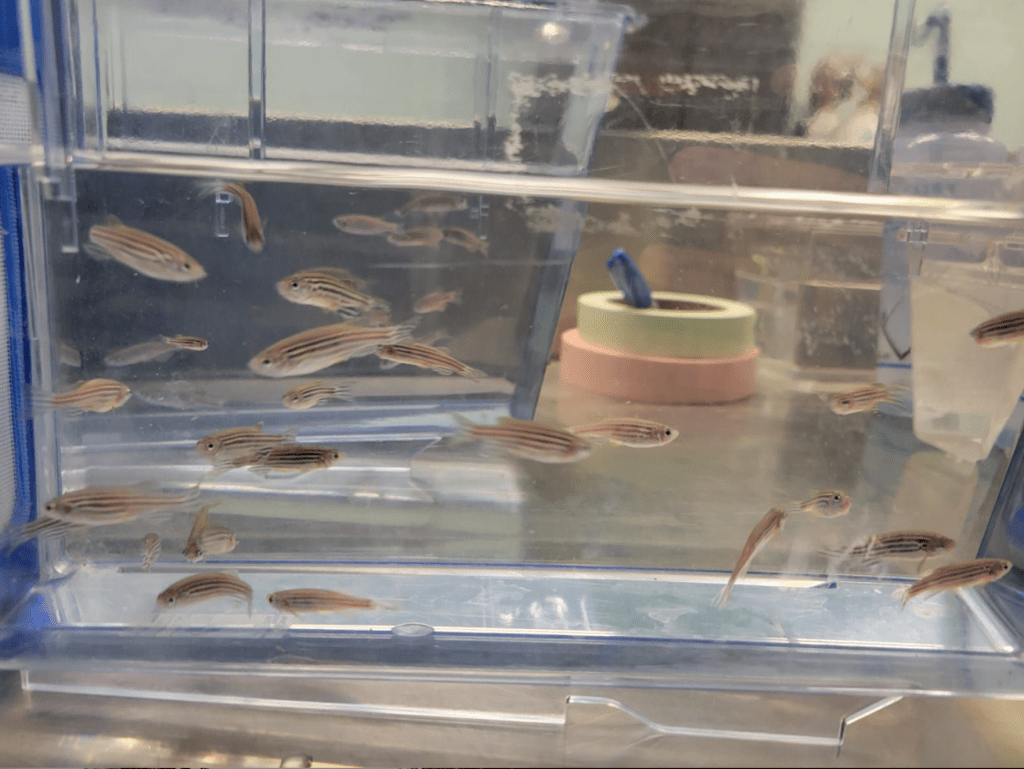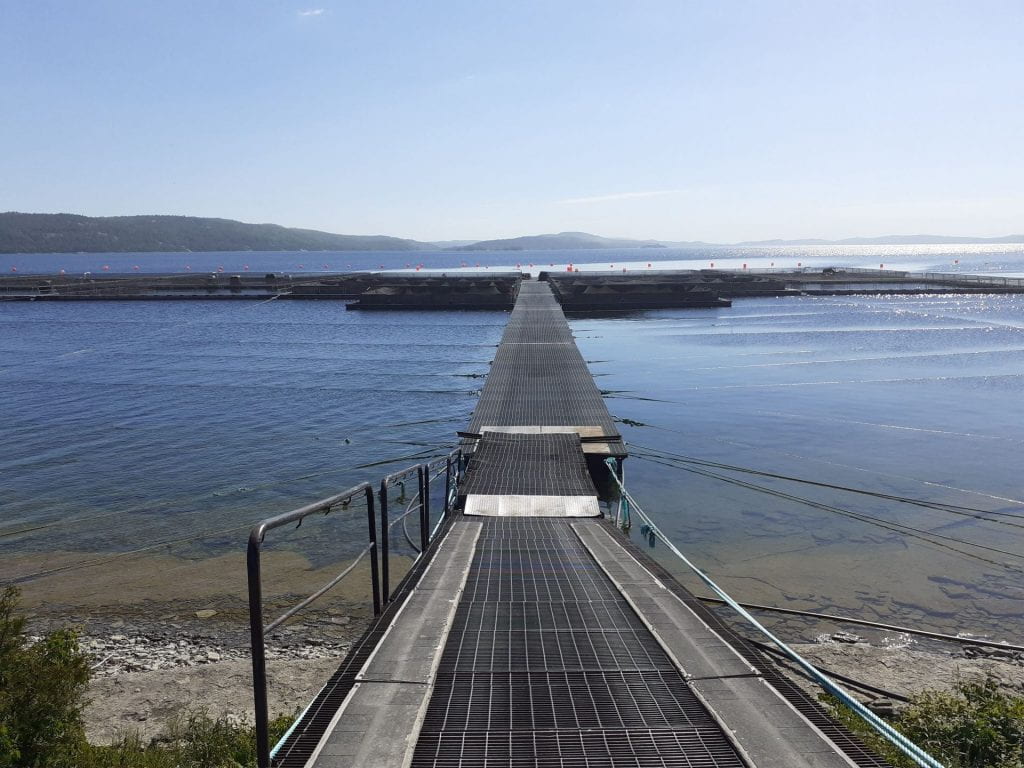The Ongoing Research Projects at Huyben Lab

Black soldier flies (Hermetia illucens) have marveled at their ability to convert waste into high-quality protein and their ability to improve the growth and immune function in fish. However, not much is known about how insects do this. We aim to feed rainbow trout (Oncorhynchus mykiss) different fractions of black soldier flies (protein, fat, and fibre) to determine these corresponding effects.

David Huyben, Rebecca Lawson, Yubing Chen, Elizabeth Gillians, Rich Moccia, Jennifer Ellis, Dominique Bureau, Marcia Chiasson
Lake whitefish (Coregonus clupeaformis) have recently been identified as a potential farmed fish in Ontario since they are native to the Great Lakes watershed, valued by several Indigenous groups, higher in omega-3 fatty acids than other fish, and taste great! However, lake whitefish are mainly fed a trout diet. We aim to optimize their diet to improve their growth performance and diversify the species of fish farmed in Ontario.

The gut is composed of millions of bacteria that help us digest fibre, produce vitamins, improve gut health, and enhance our immune system. However, performing fish feeding trials to investigate the gut microbiome requires many fish, tanks, labor, and water. We aim to develop an artificial fish gut system in the lab to simulate the effect of diet on the gut bacteria in Atlantic salmon (Salmo salar) and other fishes.

Prebiotic fibre and probiotic bacteria and yeast have been toted as health promotants in humans, pets, and now for farmed animals. However, their impact on improving disease resistance is not well-known in fish. Zebrafish (Danio rerio) are a great model species since they are easy to handle, and breed, and their genome has been intensely studied. We aim to link the effects of pre/probiotics with the immune and microbiome responses of zebrafish and validate this with rainbow trout.

Several decades of antibiotic use on animal farms around the world, including fish farms, have led to antimicrobial resistance. Antibiotic use is heavily restricted on fish farms in Canada, although little info exists on the level of resistant bacteria that may still be circulating in the environment. We aim to survey fish farms in Ontario, as well as the west and east coast of Canada that include fish swabs, sediment, invertebrates, migrating birds, and other environments to find out the health of these farms, wild ecosystems, and the human food chain.


